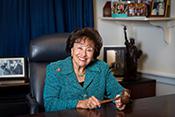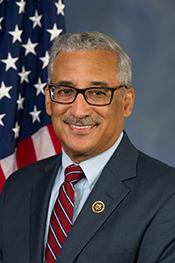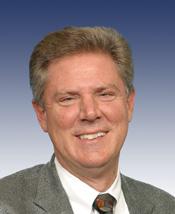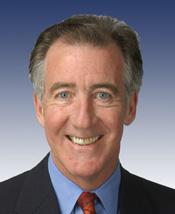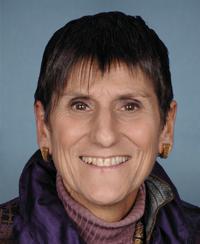0
Families First Coronavirus Response Act
8/25/2022, 6:29 PM
Congressional Summary of HR 6201
Families First Coronavirus Response Act
This bill responds to the COVID-19 (i.e., coronavirus disease 2019) outbreak by providing paid sick leave, tax credits, and free COVID-19 testing; expanding food assistance and unemployment benefits; and increasing Medicaid funding.
DIVISION A--SECOND CORONAVIRUS PREPAREDNESS AND RESPONSE SUPPLEMENTAL APPROPRIATIONS ACT, 2020
Second Coronavirus Preparedness and Response Supplemental Appropriations Act, 2020
This division provides FY2020 supplemental appropriations for federal agencies to respond to the COVID-19 outbreak.
The supplemental appropriations are designated as emergency spending, which is exempt from discretionary spending limits.
TITLE I--DEPARTMENT OF AGRICULTURE
This title provides appropriations to the Department of Agriculture (USDA) for
- the Special Supplemental Nutrition Program for Women, Infants, and Children (WIC); and
- the Emergency Food Assistance Program (TEFAP).
(Sec. 1101) This section allows USDA to approve state plans to provide emergency Supplemental Nutrition Assistance Program (SNAP, formerly known as the food stamp program) benefits to households with children who would otherwise receive free or reduced-price school meals if their schools were not closed due to the COVID-19 public health emergency. The child's school must be closed for at least five consecutive days for the household to be eligible for benefits. States may provide the benefits using the Electronic Benefit Transfer system.
(Sec. 1102) This section provides appropriations to USDA for grants to the Northern Mariana Islands, Puerto Rico, and American Samoa for nutrition assistance in response to a COVID-19 public health emergency.
TITLE II--DEPARTMENT OF DEFENSE
This title provides appropriations to the Defense Health Program for COVID-19 diagnostic testing and services.
TITLE III--DEPARTMENT OF THE TREASURY
This title provides appropriations to the Internal Revenue Service to implement the tax credits included in this bill.
TITLE IV--DEPARTMENT OF HEALTH AND HUMAN SERVICES
This title provides appropriations to the Indian Health Service for COVID-19 diagnostic testing and services.
TITLE V--DEPARTMENT OF HEALTH AND HUMAN SERVICES
This title provides appropriations to the Administration for Community Living for nutrition programs that assist the elderly.
The title also provides appropriations to the Public Health and Social Services Emergency Fund. The funds are provided for the National Disaster Medical System to reimburse the costs of providing COVID-19 diagnostic testing and services to individuals without health insurance.
TITLE VI--DEPARTMENT OF VETERANS AFFAIRS
This title provides appropriations to the Veterans Health Administration for COVID-19 diagnostic testing and services.
TITLE VII--GENERAL PROVISIONS--THIS ACT
(Sec. 1701) This section requires agencies that receive funding in this division to report to Congress regarding the anticipated uses of the funds.
(Sec. 1702) This section requires state and local governments that receive funding or assistance in this division to ensure that (1) the respective State Emergency Operations Center receives regular and real-time reporting on aggregated data on testing and results from state and local public health departments, and (2) the data is transmitted to the Centers for Disease Control and Prevention.
(Sec. 1703) This section specifies that the funds provided by this division are in addition to funds otherwise appropriated for the fiscal year involved.
(Sec. 1704) Funds provided by this division may not remain available beyond the current fiscal year, unless this division provides otherwise.
(Sec. 1705) Unless otherwise specified by this division, the funds provided by this division are subject to the authorities and conditions that apply to the applicable appropriations account for FY2020.
(Sec. 1706) This section provides that amounts designated by this division as emergency requirements are only available (or rescinded, if applicable) if the President subsequently designates the amounts and transmits the designations to Congress.
(Sec. 1707) This section specifies that the emergency funds that are transferred pursuant to this division retain the emergency designation.
DIVISION B--NUTRITION WAIVERS
This division expands food and nutrition programs of the Department of Agriculture (USDA) due to COVID-19.
TITLE I--MAINTAINING ESSENTIAL ACCESS TO LUNCH FOR STUDENTS ACT
Maintaining Essential Access to Lunch for Students Act or the MEALS Act
(Sec. 2102) This title modifies USDA food and nutrition programs to allow certain waivers of requirements for the school meal programs, including waivers that increase federal costs during a COVID-19-related school closure. Such waivers must be requested by a state or service provider and be for purposes of providing meals and snacks during such a closure.
TITLE II--COVID-19 CHILD NUTRITION RESPONSE ACT
COVID-19 Child Nutrition Response Act
(Sec. 2202) This section authorizes USDA to
- issue a single waiver of child nutrition program requirements to all states under the National School Lunch Program for purposes of providing meals and snacks with appropriate safety measures with respect to COVID-19,
- grant waivers of requirements to allow non-congregate feeding in the Child and Adult Care Food Program for purposes of providing meals and snacks with appropriate safety measures with respect to COVID-19, and
- grant waivers related to the nutritional content of meals served in child nutrition programs if it determines the waiver is necessary to provide meals and snacks and there is a food supply chain disruption due to COVID-19.
(Sec. 2203) USDA may
- grant waivers allowing participants under the Special Supplemental Nutrition Program for Women, Infants, and Children (WIC) to get certified or recertified without being physically present at a WIC clinic, and
- defer anthropometric and bloodwork requirements necessary to determine nutritional risk.
State agencies must submit waiver requests to USDA.
(Sec. 2204) USDA may also grant waivers from administrative requirements for WIC if it determines that (1) the requirement cannot be met by a state due to COVID-19, and (2) the waiver is necessary to provide assistance under WIC.
TITLE III--SNAP WAIVERS
(Sec. 2301) This section temporarily suspends work requirements under the Supplemental Nutrition Assistance Program (SNAP, formerly known as the food stamp program) during a public health emergency declaration due to COVID-19, allowing participants who would have lost eligibility due to such requirements to continue to receive SNAP benefits.
(Sec. 2302) This section provides for emergency SNAP benefits during a public health emergency declaration due to COVID-19.
States may request waivers from USDA to provide emergency allotments to households participating in SNAP to address temporary food needs not greater than the applicable maximum monthly allotment for the household size. State requests must be supported with sufficient data.
USDA may adjust (through guidance or based on states' requests) administrative requirements such as issuance methods and reporting requirements to be consistent with what is practicable under actual conditions in affected areas.
DIVISION C--EMERGENCY FAMILY AND MEDICAL LEAVE EXPANSION ACT
Emergency Family and Medical Leave Expansion Act
(Sec. 3102) This section permits employees to take public health emergency leave through December 31, 2020, to care for the employee's child during a COVID-19 (i.e., coronavirus disease 2019) public-health emergency. Specifically, employers of fewer than 500 workers must provide up to 12 weeks paid leave for an employee who cannot work because the school or child-care provider of that employee's child is closed as a result of a public-health emergency.
Employers are not required to pay employees for the first 10 days of such public health emergency leave. However, an employee may use accrued paid leave during such time. After the first 10 days, employers must pay not less than two-thirds of an employee's regular pay for the number of hours per week the employee normally works. The maximum amount of compensation for such leave is $200 per day and $10,000 in aggregate.
Further, employers are generally required to restore an employee's former position following the use of public health emergency leave unless, the employer (1) has fewer than 25 workers and (2) has made reasonable efforts to retain the employee's position but such position no longer exists due to economic conditions caused by such public health emergency.
With a finding of good cause, the Department of Labor may (1) exclude certain health care providers and emergency responders from eligibility for public health emergency leave, and (2) exempt employers with fewer than 50 employees if the requirements of this section would place the viability of that business at risk.
(Sec. 3103) Employers subject to multiemployer bargaining agreements may make contributions to a multiemployer fund to fulfill the employer's obligations under this division and employees may secure compensation from such fund for leave taken subject to this division.
(Sec. 3104) Employers with fewer than 50 employees for each working day during each of at least 20 workweeks during the preceding year are not subject to civil liability for a violation of this division.
(Sec. 3105) Employers of health care providers or emergency responders may exclude employees from the requirements of this division.
(Sec. 3106) This division takes effect not later than 15 days after enactment.
DIVISION D--EMERGENCY UNEMPLOYMENT INSURANCE STABILIZATION AND ACCESS ACT OF 2020
Emergency Unemployment Insurance Stabilization and Access Act of 2020
(Sec. 4102) This section funds emergency grants for FY2020 to administer unemployment programs in states meeting certain requirements. The amount of available funds for each state is based on the Department of Labor's determination of the proportion of the total taxable wages attributable to a state during the preceding year. Each state receives 50% of such determined amount if the state
- requires employers to notify employees about the availability of unemployment compensation at the time the employee separates from an employer;
- ensures that unemployment applications are available through at least two of three methods: in-person, by phone, or online; and
- provides assistance with processing unemployment applications.
Additionally, a state receives the remaining 50% of such funds if, among other requirements
- the number of unemployment claims in the state has increased by at least 10% compared with the same quarter during the previous year; and
- the state demonstrates policies to increase access to unemployment compensation such as waiving the requirement to search for work and the one-week waiting period to receive benefits, among others.
(Sec. 4103) This section suspends the accrual of interest through December 31, 2020, on federal payments made to states for assistance with unemployment compensation.
(Sec. 4104) Labor must assist states in raising public awareness about available short-time compensation programs and provide technical assistance and guidance for such programs.
(Sec. 4105) This section increases to 100% the federal share of payments to states for extended and regular unemployment compensation through December 31, 2020.
DIVISION E--EMERGENCY PAID SICK LEAVE ACT
Emergency Paid Sick Leave Act
(Sec. 5102) This section requires employers to provide paid sick time to employees who are unable to work due to the effects of COVID-19 (i.e., coronavirus disease 2019). Specifically, full-time employees are entitled to 80 hours of paid sick time, which is available immediately, for use if the employee
- is subject to a governmental quarantine or isolation order,
- has been advised by a health-care provider to self-quarantine,
- is caring for an individual who is subject to governmental or self-quarantine,
- is caring for the employee's child because the child's school or child-care provider is closed, or
- is experiencing a substantially similar circumstance related to COVID-19 as specified by the Department of Health and Human Services, in consultation with the Department of Labor.
Paid sick time under this section may be used before other paid leave that may be available to an employee. Part-time employees are entitled to such paid sick time for the average number of hours the part-time employee works during an average two-week period. Paid sick time under this section may not carry over from one year to the next.
(Sec. 5103) Employers must provide conspicuous notice in the workplace of the emergency paid sick time requirements under this division and Labor must provide publicly-available models of such notice not later than seven days after the enactment of this division.
(Sec. 5104) Employers are prohibited from taking adverse actions against employees who take leave under this division or take actions to enforce the requirements of this division.
(Sec. 5105) Employers who violate the emergency paid sick time requirements are subject to fines and imprisonment pursuant to the Fair Labor Standards Act of 1938.
(Sec. 5106) Employers subject to multiemployer bargaining agreements may make contributions to a multiemployer fund to fulfill the employer's obligations under this division and employees may secure compensation from such fund for emergency paid sick time used subject to this division.
(Sec. 5107) This division does not affect employer rights or benefits under any other law, collective bargaining agreement, or existing employer policy. Employers are not required to pay employees for unused emergency paid sick time if an employee resigns, retires, or is terminated.
(Sec. 5108) The emergency paid sick time requirements take effect not later than 15 days after the enactment of this division.
(Sec. 5109) The emergency paid sick time requirements expire on December 31, 2020.
(Sec. 5110) Employers with fewer than 500 employees and federal, state, and local public agencies are subject to the requirements of this division. Employers must pay the regular rate of pay up to
- $511 per day, and $5,110 in aggregate, for paid sick time used by an employee who experiences symptoms of COVID-19 or is required or advised to self-quarantine; or
- $200 per day, and $2,000 in aggregate, for paid sick time used by an employee to care for the employee's child or other impacted person.
(Sec. 5111) With a finding of good cause, Labor may (1) exclude certain health care providers and emergency responders from eligibility for emergency paid sick leave, and (2) exempt employers with fewer than 50 employees if the requirements of this division would place the viability of that business at risk.
DIVISION F--HEALTH PROVISIONS
(Sec. 6001) This section requires private health insurance to cover testing for COVID-19 without imposing cost-sharing (e.g., deductibles, coinsurance, or copayments) for the duration of the public health emergency declared on January 31, 2020. This coverage includes the cost of administering such approved tests and related visits to health care providers.
(Sec. 6002) This section requires Medicare to cover, without cost-sharing, visits to health care providers that relate to COVID-19 testing during the public health emergency.
(Sec. 6003) Medicare Advantage (MA) plans must also cover COVID-19 testing and related visits without cost-sharing during the public health emergency. MA plans are also prohibited from instituting prior authorization or other utilization management requirements with respect to coverage of such services.
(Sec. 6004) Additionally, COVID-19 testing and related visits must be covered without cost-sharing under the Children's Health Insurance Program (CHIP) and Medicaid during the public health emergency.
State Medicaid programs may also cover COVID-19 testing and related visits for uninsured individuals during this period. The section applies a 100% Federal Medical Assistance Percentage (FMAP) to such coverage.
(Sec. 6005) This section extends targeted liability protection to certain manufacturers, distributors, prescribers, and users of approved respiratory protective devices that are (1) subject to specified emergency use authorizations; and (2) used during the period beginning on January 27, 2020, and ending on October 1, 2024. (Emergency use authorizations allow for the use of unapproved drugs, biological products, or devices, or for the unapproved use of such products, to respond to a declared emergency.)
(Sec. 6006) During the emergency period, the Department of Defense (i.e., TRICARE) and Department of Veterans Affairs are also prohibited from requiring cost-sharing for COVID-19 testing and related visits. Additionally, individuals in civil service (i.e., all appointive positions in the executive, judicial, and legislative branches, excluding the uniformed services) who are enrolled in a health benefits plan shall not be subject to cost-sharing requirements for such services.
(Sec. 6007) This section requires the Department of Health and Human Services to cover, during the public health emergency and without cost-sharing, COVID-19 testing and related visits for Native Americans, including Alaska Natives, who receive health services through the Indian Health Service (IHS), regardless of whether the COVID-19 services are covered under IHS.
(Sec. 6008) This section increases the Medicaid FMAP for all states and U.S. territories during the public health emergency, in accordance with specified conditions. For example, in order to receive the increased FMAP, a state Medicaid program may not require standards for eligibility that are more restrictive than the standards that were in effect on January 1, 2020.
(Sec. 6009) This section increases Medicaid funding for U.S. territories for FY2020-FY2021.
DIVISION G--TAX CREDITS FOR PAID SICK AND PAID FAMILY AND MEDICAL LEAVE
(Sec. 7001) This section allows a credit against payroll taxes for 100% of the employer-paid qualified sick leave wages paid each calendar quarter, subject to specified limitation. The amount of sick leave wages taken into account for purposes of the credit may not exceed $200 for any employee ($511 per day employees as defined under the Emergency Paid Sick Leave Act) and the aggregate number of days taken into account is limited to 10, over the number of days taken into account for preceding calendar quarters.
Transfers from the general fund of the Treasury are authorized to cover reductions in revenue resulting from this credit.
(Sec. 7002) This section allows a refundable income tax credit for 100% of sick leave amounts of self-employed individuals under the Emergency Paid Sick Leave Act. For other employees, the credit percentage is 67.
Self-employed individuals must maintain documentation prescribed by the Internal Revenue Service to establish eligibility for the credit.
(Sec. 7003) This section allows an employer a 100% payroll tax credit for qualified family leave wages paid by such employer for each calendar quarter. The amount of qualified family leave wages that may be taken into account for each employee is limited to $200 per day and $10,000 for all calendar quarters.
Transfers from the general fund of the Treasury are authorized to cover reductions in revenue resulting from this credit.
(Sec. 7004) This section allows a refundable income tax credit for 100% of the qualified family leave amounts of self-employed individuals, subject to a specified formula for determining the leave amounts.
Self-employed individuals must maintain documentation prescribed by the Internal Revenue Service to establish eligibility for the credit.
(Sec. 7005) This section provides that wages required to be paid to employees under the Emergency Paid Sick Leave Act and the Emergency Family and Medical Leave Expansion Act shall not be considered wages for purposes of the Federal Insurance Contributions Act (FICA). Transfers to specified Social Security trust funds are authorized to cover reductions in revenues.
DIVISION H--BUDGETARY EFFECTS
(Sec. 8001) This section exempts the budgetary effects of division B and each succeeding division of this bill from (1) the Statutory Pay-As-You-Go (PAYGO) Act of 2010, (2) the Senate PAYGO rule, and (3) certain budget scorekeeping rules.
